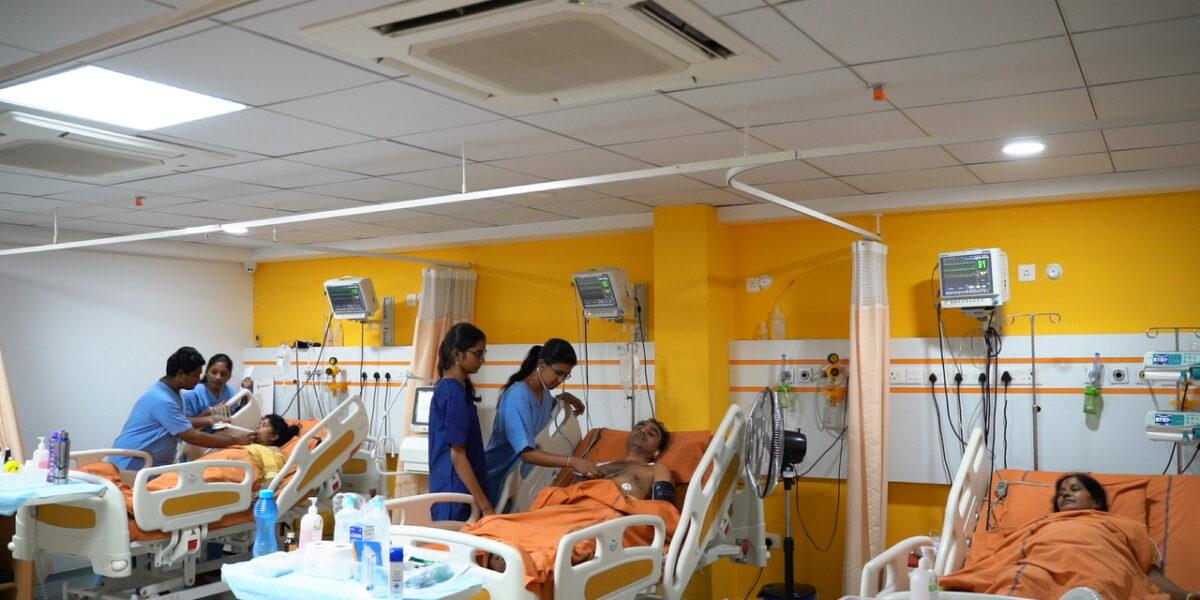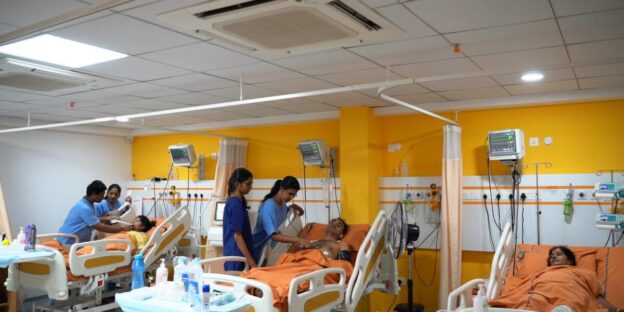The best Post-Operative Care: Ensuring a Smooth Recovery After Neurosurgery
Introduction:
Undergoing neurosurgery is a significant step towards improving one’s health and well-being. While the surgical procedure itself is vital, it is equally important to prioritize post-operative care for a successful recovery. In this blog, we will explore the importance of post-operative care after neurosurgery and discuss the steps that patients can take to ensure a smooth healing process.
- Understanding the Importance of Post-Operative Care : Post-operative care plays a crucial role in promoting healing, minimizing complications, and optimizing outcomes after neurosurgery. It involves a comprehensive approach that addresses physical, emotional, and practical aspects of recovery. By following post-operative care instructions, patients can facilitate their healing process and reduce the risk of complications.
a) Managing Pain and Discomfort: Pain management is a key component of post-operative care. Patients are typically prescribed pain medications to alleviate discomfort. It is essential to follow the prescribed dosage and inform healthcare providers about any concerns or side effects.
b) Wound Care: Proper wound care is vital to prevent infections and promote healing. Patients should keep the incision site clean and dry, follow dressing change instructions, and notify their healthcare team of any signs of infection, such as redness, swelling, or drainage.
c) Medication Management: Following a neurosurgical procedure, patients may be prescribed medications for various purposes, such as controlling seizures or managing swelling. It is crucial to take medications as directed, adhere to the recommended schedule, and communicate any adverse reactions to the medical team.
d) Rest and Recovery: Adequate rest and relaxation are essential for the healing process. Patients should follow their healthcare provider’s guidelines regarding physical activity restrictions and gradually increase their level of activity as recommended.
- Embracing Healthy Lifestyle Choices : In addition to specific post-operative instructions, adopting a healthy lifestyle can greatly contribute to the recovery process after neurosurgery. Making positive choices regarding nutrition, physical activity, and emotional well-being can enhance healing and overall well-being.
a) Balanced Diet: A nutritious diet promotes healing and provides the body with essential nutrients. Patients should focus on consuming a balanced diet rich in fruits, vegetables, lean proteins, and whole grains. Adequate hydration is also crucial for recovery.
b) Gentle Exercise: Physical activity, as recommended by the healthcare team, can aid in the recovery process. Engaging in gentle exercises, such as walking or light stretching, can improve blood circulation, enhance mobility, and boost mood.
c) Mental and Emotional Support: Coping with the emotional aspects of recovery is equally important. Patients should seek support from loved ones, participate in activities that promote relaxation, and consider counseling or support groups to manage any emotional challenges.
d) Follow-Up Appointments and Communication: Regular follow-up appointments with the healthcare team are essential to monitor progress, address concerns, and make any necessary adjustments to the recovery plan. Open communication with healthcare providers ensures that patients receive optimal care throughout their recovery journey.
- Potential Complications and When to Seek Help : While most patients recover smoothly after neurosurgery, it is crucial to be aware of potential complications and know when to seek medical assistance. Recognizing warning signs and promptly contacting healthcare providers can help prevent serious complications and ensure timely intervention.
a) Infection: Signs of infection at the surgical site, such as increased pain, redness, swelling, or discharge, should be promptly reported to the medical team.
b) Fever: Elevated body temperature can indicate an infection or another underlying issue. Patients should monitor their temperature regularly and seek medical advice if a persistent or high-grade fever is present.
c) Neurological Changes: Any sudden or significant changes in neurological function, such as weakness,
numbness, difficulty speaking, vision changes, or worsening headaches, should be reported immediately to the healthcare team. These changes may indicate a potential complication that requires immediate evaluation and intervention.
d) Medication Side Effects: Some medications prescribed during the recovery period may have side effects. Patients should be aware of the potential side effects and promptly inform their healthcare providers if they experience any unusual symptoms or reactions.
e) Emotional Distress: Recovery from neurosurgery can be emotionally challenging. It is important to recognize signs of emotional distress, such as persistent sadness, anxiety, or changes in mood, and seek appropriate support from healthcare providers or mental health professionals.
Conclusion :
Post-operative care is a critical phase in the recovery journey after neurosurgery. By understanding the importance of post-operative care and taking proactive steps, patients can promote healing, minimize complications, and optimize their overall recovery. Following the healthcare team’s instructions regarding pain management, wound care, medication management, and rest is crucial. Embracing a healthy lifestyle that includes a balanced diet, gentle exercise, and emotional well-being further supports the healing process. It is also important to be vigilant about potential complications and seek immediate medical attention when necessary. By actively engaging in post-operative care and maintaining open communication with healthcare providers, patients can increase the likelihood of a smooth recovery and regain their quality of life.
Remember, each individual’s recovery process may vary, and it is essential to follow the personalized instructions provided by the healthcare team. With proper post-operative care, patients can navigate the recovery period with confidence and look forward to a brighter and healthier future.
At Dr. Rao’s Hospital, the best neurosurgery hospital in India located in Guntur, every aspect of post-operative care discussed in this blog is diligently followed. Driven by a commitment to excellence, Dr. Rao and his highly skilled team of neurosurgeons and healthcare professionals prioritize the well-being and successful recovery of their patients. With extensive experience and expertise in neurosurgical procedures, Dr. Rao is widely recognized as the best neurosurgeon in India. Under his guidance, the hospital emphasizes personalized post-operative care plans tailored to each patient’s unique needs. Patients can trust that at Dr. Rao’s Hospital, they will receive exceptional medical attention, comprehensive support, and continuous monitoring to ensure a smooth and successful recovery journey.
#PostOperativeCare #NeurosurgeryRecovery #SmoothRecovery #NeurosurgeryTips #HealthcareJourney #NeurosurgerySupport #HealingAfterSurgery #NeurosurgeryRehabilitation #PatientCare #NeurosurgeryWellness


